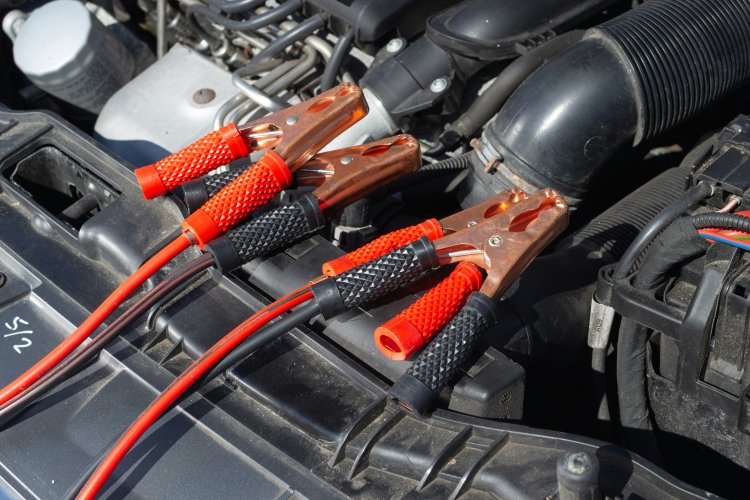Powering the Future Sustainably: The Urgent Case for Advanced Battery Recycling
The age of electrification is upon us—and it’s accelerating faster than the world’s supply chains can keep up. With electric vehicles, renewable energy storage, and consumer electronics at the forefront of the global transition to a greener economy, demand for critical minerals has surged beyond projections.
Share this Post to earn Money ( Upto ₹100 per 1000 Views )

The age of electrification is upon us—and it’s accelerating faster than the world’s supply chains can keep up. With electric vehicles, renewable energy storage, and consumer electronics at the forefront of the global transition to a greener economy, demand for critical minerals has surged beyond projections. Lithium, cobalt, nickel, and manganese—core elements in lithium-ion batteries—are now the lifeblood of clean technologies. But the question we must answer is not just how to mine more, but how to reuse better.
At LOHUM, we believe the answer lies not beneath the ground, but within the smart circular economy—where innovation, resourcefulness, and responsibility converge to power a more sustainable future. As India’s leading producer of sustainable battery raw materials, LOHUM is pioneering technologies that are transforming how we view, use, and reuse resources like lithium, cobalt, and nickel. By advancing recycling and reuse of lithium-ion batteries, we are reshaping the supply chain from linear to circular—one battery at a time.
The Growing Strain on Critical Minerals
The supply-demand imbalance for critical minerals is no longer speculative—it’s measurable. According to industry estimates, the cost of minerals makes up nearly 50% of the total cost of a lithium-ion battery. Meanwhile, the price of cobalt, nickel, and lithium has shown volatility as high as 300% in a single year. Despite a 90% reduction in overall EV battery costs in the past decade, the dependence on volatile markets and geopolitically sensitive regions for these minerals continues to pose long-term risks.
For instance, over 60% of the world’s cobalt supply originates from the Democratic Republic of Congo—an area linked to illegal mining, armed conflict, and environmental degradation. Relying solely on virgin mineral extraction not only intensifies environmental destruction but also exacerbates social injustices across global supply chains.
Recycling as the Cornerstone of Energy Security
Traditional recycling methods—pyrometallurgy and hydrometallurgy—have long served the industry but are often energy-intensive and environmentally taxing. Pyrometallurgy, in particular, involves high-temperature processing and the removal of toxic exhaust gases, contributing significantly to greenhouse gas emissions. Moreover, after both pyro and hydro processes, minerals still require re-refining before being resynthesized into new compounds, adding complexity and cost.
Enter direct recycling—a process LOHUM champions as a future-forward solution. Unlike conventional methods, direct recycling maintains the integrity of the lithium-ion battery’s most valuable component: the cathode compound. By refunctionalizing and relithiating the cathode material, the process retains its structural and electrochemical properties, significantly reducing the need for energy-intensive reprocessing.
What’s more, cutting-edge research reveals that this method doesn't just match the performance of newly manufactured cathodes—it surpasses it. Recycled cathodes exhibit improved porosity and larger central voids within particles, enhancing lithium-ion mobility, reducing cracking, and increasing both charging speed and battery longevity.
Building a Domestic Supply Chain for Battery Sustainability
Global reliance on imported battery materials is not sustainable. As the market for lithium-ion batteries is poised to grow tenfold over the next decade, the need for domestic recycling infrastructure becomes vital. Countries like China currently dominate battery recycling, leading to long-distance transportation that increases the carbon footprint of otherwise green technologies.
LOHUM is addressing this challenge by scaling up India’s domestic ecosystem for lithium-ion battery reuse, recycling, and remanufacturing. Our proprietary recycling technologies not only recover over 95% of valuable metals from end-of-life batteries but also convert them into lithium-ion battery cathode precursors—ready to power the next generation of clean energy solutions.
This approach drastically reduces reliance on virgin mining and international supply chains while delivering environmental and economic gains. It is a pivotal move towards strategic autonomy, energy security, and long-term sustainability.
Second Life, First Priority
Another promising frontier in the circular economy is the repurposing of used EV batteries for second-life applications. Before recycling, many batteries retain enough capacity to be effectively used in stationary energy storage systems—such as solar backup grids and industrial power buffers. LOHUM’s second-life solutions extend the usable lifespan of batteries, optimize lifecycle emissions, and help maximize return on raw material investments.
This dual approach—first repurposing, then recycling—ensures that each battery cell delivers its full value to the economy and the environment. By prioritizing reuse, we reduce waste, ease supply constraints, and lower the overall carbon footprint of battery production.
Policy, Innovation, and a Circular Future
Governments around the world are waking up to the urgency. California has set a mandate that 100% of electric vehicle batteries must be recycled or reused at the end of life. Policy levers such as extended producer responsibility (EPR), material labeling standards, and investment in domestic recycling infrastructure are gaining momentum.
But policies alone won’t close the loop. It takes visionary innovation, scalable technologies, and commitment from stakeholders at every level. That’s the mission LOHUM has taken on—with one of the largest battery repurposing and recycling operations in South Asia, we’re not just building better batteries—we’re enabling a better world.
The Road Ahead
The battery industry stands at a crossroads. We can either continue down the path of extractive dependency or pivot toward a closed-loop economy where nothing goes to waste and every atom is valued.
At LOHUM, we choose the latter. Our vision is to transform how the world sources materials—less from mines and more from minds. Through the sustainable recovery of critical minerals and the regeneration of lithium-ion battery cathode precursors, we are turning yesterday’s batteries into tomorrow’s energy.
Visit us at: Li-ion battery disposal regulations
Originally published on: Sites Google












